Fri, 26 December 2014
 We've had a great year on The Marketing Companion podcast and Tom Webster and I thought we would end 2014 with a bit of fun. We've compiled a few of the most hilarious highlights from our podcast so you can ring in 2015 with a laugh. Nothing But the Funny Bits features some of our most popular "products" that got us laughing the hardest, including: We've had a great year on The Marketing Companion podcast and Tom Webster and I thought we would end 2014 with a bit of fun. We've compiled a few of the most hilarious highlights from our podcast so you can ring in 2015 with a laugh. Nothing But the Funny Bits features some of our most popular "products" that got us laughing the hardest, including:
- Google Pants -- The Party in your pants!
- Ass Ads -- Monetizing your wearable technology
- Mark and Tom's first movie "Drone Wars: Rise of the Machines" starring Arnold Schwarzenegger and Christian Bale as Jeff Bezos.
- Prickstarter: When the BS is Getting Thick, Come be a Prick
- Mark and Tom's Darn Good Content including Daily Affirmations, Cats & Kids, and Breaking Bieber.
- Americans versus Europeans: Who has the best underwear?
- Social media booktitles you will never see
- Get a Room, The social media platform for lovers
- The Worst Apps in the World
- Sticker Shock, our therapy program for Facebook sticker addiction
- The Marketing Companion Holiday Catalog including Social Media Action Figures, Facebelt and Magic Seth Ball
Thanks so much for supporting us and being part of our podcast in 2014. If you enjoyed our work, tell your friends, leave a review on iTunes, and help us spread the word! We enjoy bringing you the podcast and look forward to another fun and fascinating year of marketing discussions in 2015! Please support our extraordinary sponsors. Our content is free because of their generosity. gShift’s Web Presence Analytics platform provides agencies and brands with search, social and mobile content marketing data in one place. Monitor and report on an entire web presence. Create smarter, faster content through gShift’s proprietary data. Report on the engagement and performance of your content marketing investment. Our podcast is also brought to you by Voices Heard Media. Please check out this tremendous resource for scaling social media engagement. Take a look at building an engaged and relevant audience through innovative new game, analytics, and polling platforms. .
Direct download: TMC39.mp3
Category: Social Media Marketing
-- posted at: 4:23pm BST
|
|
Sat, 13 December 2014
Hosts Mark Schaefer and Tom Webster have been creating written, video, and audio content for years. In this episode, they share with you some of the lessons they have learned from the mistakes and victories they have experienced along the way.
Direct download: TMC.38.mp3
Category: Social Media Marketing
-- posted at: 4:08pm BST
|
|
Fri, 28 November 2014
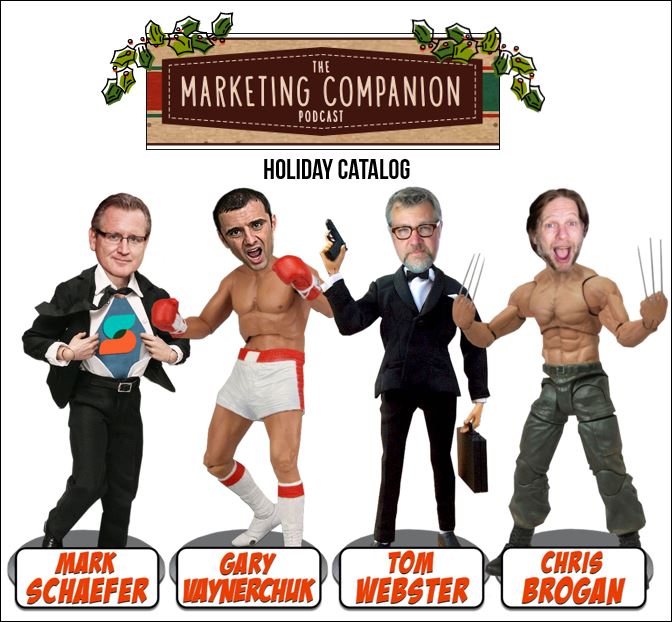 - New from The Marketing Companion! Your favorite social media personalities as bendable action figures.
- Just $12.99. Limited quantities available except for the Mark Schaefer edition. We have plenty of those.
One of my favorite activities is thinking and talking about what's coming next and there is nobody more fun to have that kind of discussion with than Tom Webster as we take on what's next in digital marketing. On the latest Marketing Companion, Tom and I introduce the Marketing Companion Holiday Catalog (and our new League of Legends Action Figures!) and dive into some things we're watching for 2015: - Why podcasting is having "a moment" and why agencies are behind a growing success
- The mega-trend that may be forging all other digital trends
- Billboards ... a trend?
- The missing link to integrated marketing
- Malignant complexity and its challenge to every marketer
- Facebook -- are businesses going to be in or out? A flight away from Facebook and how it might play out.
- The commoditization of Big Data and the trickle down to small businesses.
And many thanks to our friend Ralph Cipolla for the Awesome Graphic today! Ready to rock? Here we go! Resources mentioned in this show Content Shock post Old Spice integrated campaign Tableau software Please support our extraordinary sponsors. Our content is free because of their generosity. gShift’s Web Presence Analytics platform provides agencies and brands with search, social and mobile content marketing data in one place. Monitor and report on an entire web presence. Create smarter, faster content through gShift’s proprietary data. Report on the engagement and performance of your content marketing investment. Our podcast is also brought to you by Voices Heard Media. Please check out this tremendous resource for scaling social media engagement. Take a look at building an engaged and relevant audience through innovative new game, analytics, and polling platforms.
Direct download: TMC.37.mp3
Category: Social Media Marketing
-- posted at: 4:27pm BST
|
|
Sat, 15 November 2014
 I always find it curious when people compare our social media presence with our REAL presence in the "real world." What makes people think that Facebook is NOT the real world? Increasingly, we are beginning to see these lines blur. We create our personality on Facebook. But Facebook is also creating our personality. Facebook changes our behavior. Seriously. Recently, Facebook demonstrated how it can alter our moods by manipulating our content. This is a company that can affect our opinions. New research shows that social proof on Facebook contributes to our view of our self-worth, quantifies the value of friends and shapes what content we share. Where will it lead, and in the near-term, what does this mean for marketers? Fascinating question, right? So fascinating in fact, Tom Webster and I devoted an entire podcast to it. This one covers a lot of territory in 30 minutes! I always find it curious when people compare our social media presence with our REAL presence in the "real world." What makes people think that Facebook is NOT the real world? Increasingly, we are beginning to see these lines blur. We create our personality on Facebook. But Facebook is also creating our personality. Facebook changes our behavior. Seriously. Recently, Facebook demonstrated how it can alter our moods by manipulating our content. This is a company that can affect our opinions. New research shows that social proof on Facebook contributes to our view of our self-worth, quantifies the value of friends and shapes what content we share. Where will it lead, and in the near-term, what does this mean for marketers? Fascinating question, right? So fascinating in fact, Tom Webster and I devoted an entire podcast to it. This one covers a lot of territory in 30 minutes!
- The power of social proof in our online marketing world
- Content competition and the homogenization of our streams
- How we are being "trained" on what to post on Facebook
- The Facebook reward system that is creating our online personas
- What are the implications for brand content
- Could Facebook manipulate political campaigns? Is it already happening?
I'm sure you are anxious to get right into this one! Let's get on with the show! Resources mentioned in this show The Goldfinch: A Novel (Pulitzer Prize for Fiction) by Donna Tartt Suttree by Cormac McCarthy The Counselor by Cormac McCarthy Marketing Podcasts Dotcom by Jay Baer Original Atlantic article on Facebook numbers by Benjamin Grosser by Cormac McCarthy The Counselor by Cormac McCarthy Marketing Podcasts Dotcom by Jay Baer Original Atlantic article on Facebook numbers by Benjamin Grosser Please support our extraordinary sponsors. Our content is free because of their generosity. gShift’s Web Presence Analytics platform provides agencies and brands with search, social and mobile content marketing data in one place. Monitor and report on an entire web presence. Create smarter, faster content through gShift’s proprietary data. Report on the engagement and performance of your content marketing investment. Our podcast is also brought to you by Voices Heard Media. Please check out this tremendous resource for scaling social media engagement. Take a look at building an engaged and relevant audience through innovative new game, analytics, and polling platforms.
Direct download: TMC_36.mp3
Category: Social Media Marketing
-- posted at: 12:28am BST
|
|
Fri, 31 October 2014
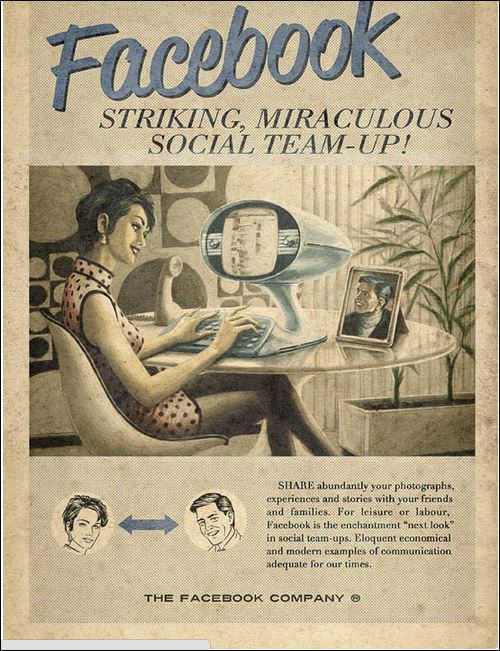 Do you nurture your online personal brand? Or is your brand simply your personality? Does your personality create your brand or does your brand create your personality? Tom Webster and I had a disagreement on this and the discussion was so compelling we decided to create some content around this in the form of a podcast. In fact, Tom characterizes personal branding as a "load of crap." Do you nurture your online personal brand? Or is your brand simply your personality? Does your personality create your brand or does your brand create your personality? Tom Webster and I had a disagreement on this and the discussion was so compelling we decided to create some content around this in the form of a podcast. In fact, Tom characterizes personal branding as a "load of crap."
- What is the role of personality containment? Vulnerability?
- Is there a formula for a personal brand?
- Opportunities for power today that didn't exist 10 years ago.
- Creating transferable assets with a personal brand
- Are skills more important than "brand"?
- Should you be creating a personal brand in your current company?
- The Dark Side of personal branding
- Personal networking, weak links and business value
We also talk about the very real crisis of addictions to Facebook stickers, also known as Sticker Shock. At this point you are probably nearly frenzied. Am I right? Let's get to the podcast! Resources mentioned in this podcast: Tom Peters: The Brand You 50 : Or : Fifty Ways to Transform Yourself from an 'Employee' into a Brand That Shouts Distinction, Commitment, and Passion! Christina "CK" Kerley Christina "CK" Kerley Please support our extraordinary sponsors. Our content is free because of their generosity. gShift’s Web Presence Analytics platform provides agencies and brands with search, social and mobile content marketing data in one place. Monitor and report on an entire web presence. Create smarter, faster content through gShift’s proprietary data. Report on the engagement and performance of your content marketing investment. Our podcast is also brought to you by Voices Heard Media. Please check out this tremendous resource for scaling social media engagement. Take a look at building an engaged and relevant audience through innovative new game, analytics, and polling platforms.
Direct download: TMC.36.mp3
Category: Social Media Marketing
-- posted at: 11:29pm BST
|
|
Fri, 17 October 2014
  It seems at the end of every year, pundits predict that "this is the year of MOBILE!" And perhaps it is finally true. But as my podcasting partner in crime Tom Webster writes in his new book The Mobile Commerce Revolution: Business Success in a Wireless World (with co-author Tim Hayden), it is mobility, not just "mobile", that is changing the world.  You are not going to want to miss this insightful discussion on the new Marketing Companion podcast about Tom's new book. You also do not want to miss our discussion of the world's worst mobile apps, which caused us to crack up so much we could not even speak! But we do eventually get to the meaty stuff like ... You are not going to want to miss this insightful discussion on the new Marketing Companion podcast about Tom's new book. You also do not want to miss our discussion of the world's worst mobile apps, which caused us to crack up so much we could not even speak! But we do eventually get to the meaty stuff like ... - The difference between mobile technology and mobility
- Creating an app today is more about sociology and psychology than IT
- How to adjust organizationally to the commerce revolution?
- Why you should not be wedded to technology
- What does a mobile commerce team look like today?
- Why many large companies are failing at mobile commerce
- The importance of removing institutional barriers to create meaningful apps
- How would a small business start creating a meaningful mobile app?
- Personalization versus privacy
- A mobile strategy based on poop. Yes. It's true.
Yes, we cover a lot of ground in just 30 minutes. What's that you say? You can't wait a moment longer? Well let's get to it! Please support our extraordinary sponsors. Our content is free because of their generosity. gShift’s Web Presence Analytics platform provides agencies and brands with search, social and mobile content marketing data in one place. Monitor and report on an entire web presence. Create smarter, faster content through gShift’s proprietary data. Report on the engagement and performance of your content marketing investment. Our podcast is also brought to you by Voices Heard Media. Please check out this tremendous resource for scaling social media engagement. Take a look at building an engaged and relevant audience through innovative new game and polling platforms.
Direct download: TMC.35.mp3
Category: Social Media Marketing
-- posted at: 8:00pm BST
|
|
Sat, 4 October 2014
 The advent of Ello has been one of the most interesting developments of the year. The new social network promises a simple, ad-free platform to connect and share. Wait. Ad-free you say? In fact, the platform's founder, Paul Budnitz, has been making the media rounds proclaiming he "doesn't care about money." While there is probably more to this network than pure virtue, Ello is undeniably HOT, signing up 30,000 new users every HOUR. Many bloggers are trumpeting this little start-up as the Facebook killer but is that realistic? Is it possible? And when the stripped-down application offers significantly less functionality than the ad-free Google+, why is this even catching on? Is this something important, or simply a reaction to failures of other networks? Tom Webster and I could not resist exploring this topic on our latest podcast which is sure to get you thinking about social media platforms in a new way. This is a jam-packed 30 minutes and just a few of the nuggets include ... The advent of Ello has been one of the most interesting developments of the year. The new social network promises a simple, ad-free platform to connect and share. Wait. Ad-free you say? In fact, the platform's founder, Paul Budnitz, has been making the media rounds proclaiming he "doesn't care about money." While there is probably more to this network than pure virtue, Ello is undeniably HOT, signing up 30,000 new users every HOUR. Many bloggers are trumpeting this little start-up as the Facebook killer but is that realistic? Is it possible? And when the stripped-down application offers significantly less functionality than the ad-free Google+, why is this even catching on? Is this something important, or simply a reaction to failures of other networks? Tom Webster and I could not resist exploring this topic on our latest podcast which is sure to get you thinking about social media platforms in a new way. This is a jam-packed 30 minutes and just a few of the nuggets include ...
The advent of Ello has been one of the most interesting developments of the year. The new social network promises a simple, ad-free platform to connect and share. Wait. Ad-free you say? In fact, the platform's founder, Paul Budnitz, has been making the media rounds proclaiming he "doesn't care about money." While there is probably more to this network than pure virtue, Ello is undeniably HOT, signing up 30,000 new users every HOUR. Many bloggers are trumpeting this little start-up as the Facebook killer but is that realistic? Is it possible? And when the stripped-down application offers significantly less functionality than the ad-free Google+, why is this even catching on? Is this something important, or simply a reaction to failures of other networks? Tom Webster and I could not resist exploring this topic on our latest podcast which is sure to get you thinking about social media platforms in a new way. This is a jam-packed 30 minutes and just a few of the nuggets include ... - Social media and the advertising "bargain"
- Ello and the implications for brands
- The economics of privacy -- Why don't Americans care?
- The biggest problem facing Ello -- it's not what you think!
- Dynamics of Ello may force better content
- Economic models that are under-utilized on the web
- Opt-in advertising for brands -- the future or a privacy nightmare?
Ready to roll? Here we go: Resources mentioned in this podcast Ello Scott Monty The questions that aren't being asked about Ello, a blog post by Douglas Karr Please support our extraordinary sponsors. Our content is free because of their generosity. gShift’s Web Presence Analytics platform provides agencies and brands with search, social and mobile content marketing data in one place. Monitor and report on an entire web presence. Create smarter, faster content through gShift’s proprietary data. Report on the engagement and performance of your content marketing investment. Our podcast is also brought to you by Voices Heard Media. Please check out this tremendous resource for scaling social media engagement. Take a look at building an engaged and relevant audience through innovative new game and polling platforms.
Direct download: TMC.34.mp3
Category: Social Media Marketing
-- posted at: 9:29pm BST
|
|
Fri, 19 September 2014
 My friend Justin Levy just had brain surgery. He went into the operation not quite knowing what would be on the other side. Despite this personal nightmare, Justin's social media presence was extraordinarily brave, honest, and revealing. Through his timely and detailed posts, his friends and followers could get a daily peek into every aspect of his trial. His successful operation was finally trumpeted with a triumphant "thumbs up photo" on Facebook. Thousands of people felt relief. My friend Justin Levy just had brain surgery. He went into the operation not quite knowing what would be on the other side. Despite this personal nightmare, Justin's social media presence was extraordinarily brave, honest, and revealing. Through his timely and detailed posts, his friends and followers could get a daily peek into every aspect of his trial. His successful operation was finally trumpeted with a triumphant "thumbs up photo" on Facebook. Thousands of people felt relief.

This very public, courageous journal of his trials made a big impact on me and my podcasting mate Tom Webster. In fact, it became the seed for our newest Marketing Companion podcast. Under the same circumstances, what would you do? And let's take the conversation a step further. What is the professional expectation of the much-discussed "authenticity?" Is anybody really authentic? Can you be strategically authentic? The result is a fascinating discussion and I think you are really going to enjoy this episode. Here are some of the topics we cover: - How important is establishing your personal social media "character?"
- The difference between transparency and authenticity
- The burden, privilege, and complexities of representing your brand online
- The tightrope between personal and professional revelations on the web
- Drawing the line -- over-sharing and personal authenticity in service of the business
- Social Accounts: The Resume of Your Life
- Social media ambassadorship -- The new professional skill?
Are you ready for this? Of course you are! Resources mentioned in this podcast Content Marketing World Kevin Spacey speech at CMW Tom Webster Share of Ear for podcasting presentation Justin Levy and his new Unstoppable Blog Scott Monty PEZ T top Illustration "Shadow Selfies" taken by Mark Schaefer in Wales 2014 Our podcast is brought to you by Voices Heard Media. Please check out this tremendous resource for scaling social media engagement.
Direct download: TMC.33.mp3
Category: Social Media Marketing
-- posted at: 7:00pm BST
|
|
Fri, 5 September 2014
 One of the most interesting aspects about being an observer in this particular time and place in the history of marketing is watching the continuous cycle of innovation, experimentation, and maturity. The dynamics of our age are unprecedented and exciting. For example, let's say we were in the 1970s. In that entire decade, what innovation caused us to re-think marketing strategy? There was probably one in the entire ten-year-period: the emergence of cable TV. If you compare it to what we face today, it really re-defines what marketing is all about, doesn't it? We need a core competency in the ability to effectively assess the relevancy of a technological innovation and rapidly reject it or deploy it. Another advantage we have today as marketers is the wave upon wave of data coming at us to help us make these decisions. One interesting data point emerged last week that was the catalyst for a much-needed conversation -- what are the boundaries of inbound marketing? The data point was a public filing revealing that HubSpot -- which defined the term "inbound marketing" -- is still hemorrhaging money after eight years and its sales and marketing costs are arguably higher than what would be expected from a "traditional" approach. On the surface, this would seem to break the inbound promise. Or does it? One of the most interesting aspects about being an observer in this particular time and place in the history of marketing is watching the continuous cycle of innovation, experimentation, and maturity. The dynamics of our age are unprecedented and exciting. For example, let's say we were in the 1970s. In that entire decade, what innovation caused us to re-think marketing strategy? There was probably one in the entire ten-year-period: the emergence of cable TV. If you compare it to what we face today, it really re-defines what marketing is all about, doesn't it? We need a core competency in the ability to effectively assess the relevancy of a technological innovation and rapidly reject it or deploy it. Another advantage we have today as marketers is the wave upon wave of data coming at us to help us make these decisions. One interesting data point emerged last week that was the catalyst for a much-needed conversation -- what are the boundaries of inbound marketing? The data point was a public filing revealing that HubSpot -- which defined the term "inbound marketing" -- is still hemorrhaging money after eight years and its sales and marketing costs are arguably higher than what would be expected from a "traditional" approach. On the surface, this would seem to break the inbound promise. Or does it?
The boundaries of inbound marketing Inbound marketing is a concept that certainly should be reaching some level of maturity by now. The strategy works, in most cases. But the revelation from Hubspot provokes the question ... does it work everywhere, and for how long? In our latest Marketing Companion podcast Tom Webster and I dissect this issue, starting with the fact that inbound marketing might mean different things to different companies based on industry structure and size. Let's hold this trend up to a strong light and take a look at the possible boundaries of inbound marketing. - Does content marketing work in a highly-competitive space?
- Is content marketing as efficient as we think?
- Should the goal of inbound be leads, relationships, or both? Is that possible?
- Hubspot shows that you also need traditional sales and advertising tactics. What is the balance? What can we learn from this?
- Do quarterly sales goals and the financial responsibilities to shareholders inhibit the potential of content marketing?
- Is there an eventual diminishing return to content marketing and how do we anticipate that?
Ready to learn more? Here we go: Resources mentioned in this podcast Tom's blog on the Hubspot earnings announcement Is Inbound Marketing Profitable or Simply a Slogan? Z.E.R.O.: Zero Paid Media as the New Marketing Model by Joseph Jaffe by Joseph Jaffe Marcus Sheridan's idea about Content Saturation Index
Direct download: TMC.32.mp3
Category: Social Media Marketing
-- posted at: 10:53pm BST
|
|
Sat, 23 August 2014
 Is there any greater source of emotional debate and mis-information on the web today than Facebook reach? I recently had a little debate on this subject with a person who wrote a glowing article on the promise of Facebook reach -- despite what appears to be pretty bad news in this corner of the web. I challenged him -- Why write an article that seems to be so counter to the facts? "I'm tired of so much negativity about Facebook," he said. "I wanted spin the facts in a more positive way." With so much at stake and so much mythology out there, it is certainly difficult to know who to believe or what to believe any more .... and we certainly do not need to be "spinning the facts." Part of the reason for so much confusion is that the truth is hard to come by. The real numbers are hidden behind company administrative accounts. There are only a few companies in the world with access to enough of these Facebook pages to make a meaningful statement about the true nature of Facebook reach. Is there any greater source of emotional debate and mis-information on the web today than Facebook reach? I recently had a little debate on this subject with a person who wrote a glowing article on the promise of Facebook reach -- despite what appears to be pretty bad news in this corner of the web. I challenged him -- Why write an article that seems to be so counter to the facts? "I'm tired of so much negativity about Facebook," he said. "I wanted spin the facts in a more positive way." With so much at stake and so much mythology out there, it is certainly difficult to know who to believe or what to believe any more .... and we certainly do not need to be "spinning the facts." Part of the reason for so much confusion is that the truth is hard to come by. The real numbers are hidden behind company administrative accounts. There are only a few companies in the world with access to enough of these Facebook pages to make a meaningful statement about the true nature of Facebook reach.
The truth about Facebook reach One of these rare companies is AgoraPulse, and my friend Emeric Ernoult The company's founder) was kind enough to share his raw data with Tom Webster and I to dissect on our latest episode of The Marketing Companion podcast. We were able to dive into the numbers behind 8,000 Facebook pages over the past 12 months and we found some surprising facts: - More than 70 percent of all companies across 104 industry designations had a decline in organic reach of 30 percent or more in the past year. I think it is accurate to say the decline in Facebook reach has been incredibly steep and rapid.
- While Facebook brand pages reach an average of 6 percent of their fans, there is wide variation by company and industry. The declines ranged as low as 1 percent to as high as 65 percent
- Only 6 percent of the industry categories have seen Facebook organic reach grow or remain steady in the past 12 months.
- There is definitely a "hierarchy of conversation" among brands that leads to higher Facebook reach. Certain types of companies are just more conversational, leading to better reach. For example, nearly 550 pages consistently still have organic reach of 40 percent or more. Media companies and sports-related brands top the list.
This last point was especially interesting to Tom and I and one of the things we discussed on the podcast was the concept of using the data as a predictive model -- Could you guide a Facebook strategy based on a number that indicates potential engagement level? Let's look at some of the numbers: 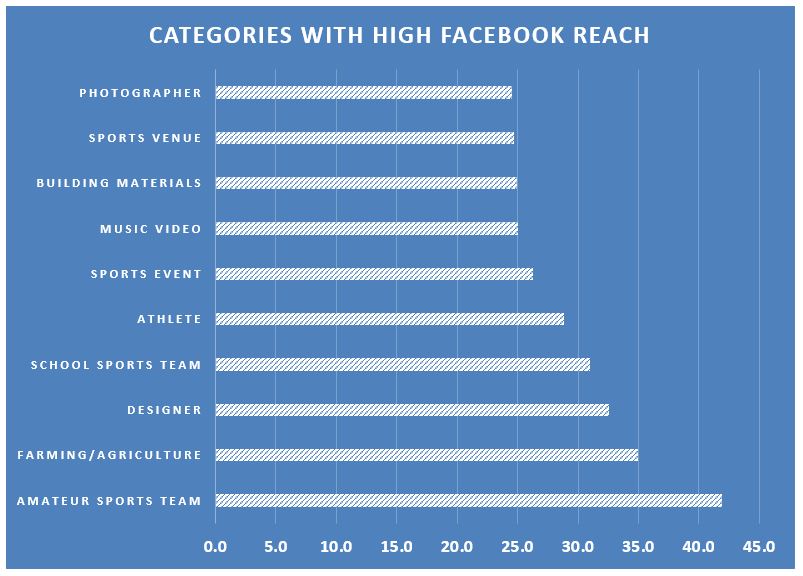 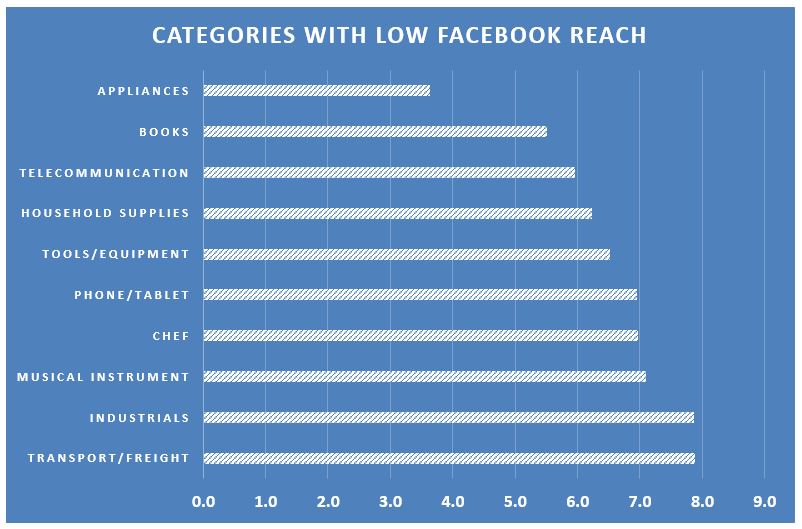 The decline in organic reach was steeper and more rapid than I expected. No wonder marketing strategies are in turmoil if organic reach has declined 30 percent or more for some companies in such a short period of time: The decline in organic reach was steeper and more rapid than I expected. No wonder marketing strategies are in turmoil if organic reach has declined 30 percent or more for some companies in such a short period of time: 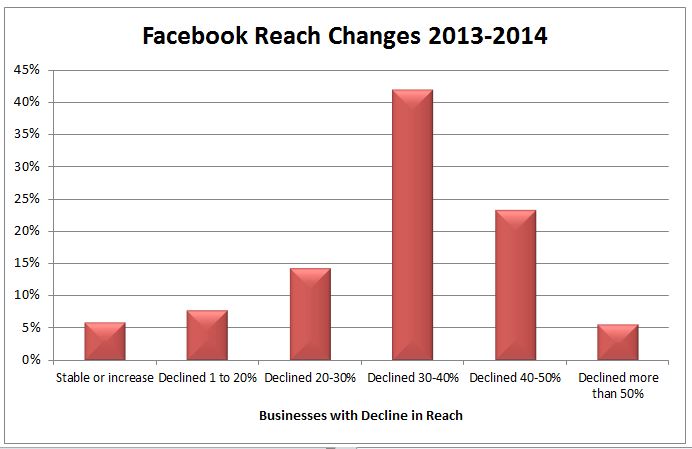 What's the recipe for higher organic reach? AgoraPulse gets to see more Facebook success stories than almost any company out there. So what is the key to success? The company's founder Emeric Ernoult shared these tips: "As with everything in the online world, there's no one-size-fits-all recipe. But to help focus on some success themes, I've hand-picked four Facebook pages that are doing extremely well and enjoying an average post reach above 50 percent of their fan base. Let's learn from them." Animals Australia OK, granted, this non-profit is about protecting animals and people love visuals of animals (and love their pets!). But they don't only post good looking puppies, they also post a lot of very interesting content relating to their cause. You're in the animals business? Facebook will make you happy. The Daily Muse Career advice? Yes, the Muse is a real business with a real business model (selling job postings to employers) but they also have so much content (very helpful and insightful content!) that their fans are engaged way above average. Super Chevy Mag Car lovers love to share their passion. And they usually love to read magazines that focus on that passion. Having a Facebook page for such a magazine cannot be a bad idea. Maxxess Maxxess is a French e-commerce site selling motorbike accessories. There is no doubt that motorbike owners are very passionate about their bike and the biking lifestyle. If you sell stuff to people who have a passion, Facebook is a must.Episode 31 What do these 4 pages have in common: - They target an audience with a strong passion
- They publish very good content (at least, very good for their target audience)
- They publish very consistently (at least once a day, often more)
- They get a LOT of shares (thanks to the 3 points above), and shares are what offers the highest level of "viral" visibility for a page's content.
I'm sure you'll agree this is pretty interesting stuff but to get the inside scoop, you'll want to check out our new podcast, which also covers a hilarious new social media app called "Get a Room!"
Direct download: TMC.31.mp3
Category: Social Media Marketing
-- posted at: 11:27pm BST
|
|
Fri, 8 August 2014
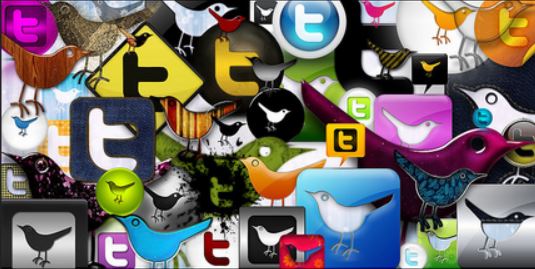 Are you using Twitter for your business? Maybe the time for Twitter is now if you consider some of the trends on this popular social media platform: Are you using Twitter for your business? Maybe the time for Twitter is now if you consider some of the trends on this popular social media platform:
- Twitter has momentum. Revenue jumped 124 percent in the latest quarter, and it "beat the Street" estimates for user growth.
- Twitter shined during the World Cup, owning the online conversation for the planet's biggest sporting event.
- It appears that Twitter is preparing a "buy now" button.
In our new Marketing Companion podcast, Tom Webster and I dissect the economics of Twitter for business and demonstrate why this might be the best time to integrate Twitter into your marketing plans. Some of the podcast highlights: - How Twitter is giving a free advertising bonus most businesses don't know about.
- How to use Lead Generation Cards as a free business-building tool.
- Twitter has become the de facto "second screen" for television -- what does this mean to the value of Twitter for business?
- Although only 16 percent of adult Americans have active accounts, more than three times that number actively see tweets or watch a Twitter stream without logging in -- a "ghost audience" for businesses that does not show up in the numbers.
- Why analysts should not keep lumping Twitter in with Facebook and LinkedIn
- Businesses are overlooking powerful free research capabilities -- we provide a real example and look at the three levels of free Twitter search
- The meaning of Twitter for personal networking
Both Tom and I agree on this one -- this is an excellent time for businesses to look at Twitter as a research, advertising, and networking platform, Ready to check out the podcast? Resources mentioned in this podcast The book The Tao of Twitter, Revised and Expanded New Edition: Changing Your Life and Business 140 Characters at a Time Songza, a curated music channel Christel Quek of Twitter Jay Baer's book Youtility: Why Smart Marketing Is about Help Not Hype Songza, a curated music channel Christel Quek of Twitter Jay Baer's book Youtility: Why Smart Marketing Is about Help Not Hype
Direct download: TMC.30.mp3
Category: Social Media Marketing
-- posted at: 8:00pm BST
|
|
Fri, 25 July 2014
 Have you tried The Marketing Companion podcast yet? People seem to love the humor and intelligence of our audio marketing adventures. If you have not listened in yet, this would be a great edition to begin with. In this show, Tom Webster and I were far too caffeinated to stick to one subject so we decided to go through a grab bag of current topics including: Erasing yourself from Google. New European Union legislation on "the right to be forgotten" allows people to remove themselves from search results. Why hasn't this been an issue in the U.S,? And what happens when you have the ability to remove yourself from history? There are also some profound implications for marketers and content creators. Buyer personas -- Tom and I open up a "mental can of worms" when we discuss the use and perhaps over-use of buyer personas and the difference between "audience" and "buyers." Are you sure you know who your buyers are? Are personas always necessary? Do personas kill great content? LinkedIn blogging -- An important source of business content or more Content Shock? Tom and I disagree on this topic. Content inspiration -- Tom and I share key tips for finding new topic ideas for our blogs. My goodness. It is a veritable cornucopia of marketing delight! No time to waste now, click here to dive in: Have you tried The Marketing Companion podcast yet? People seem to love the humor and intelligence of our audio marketing adventures. If you have not listened in yet, this would be a great edition to begin with. In this show, Tom Webster and I were far too caffeinated to stick to one subject so we decided to go through a grab bag of current topics including: Erasing yourself from Google. New European Union legislation on "the right to be forgotten" allows people to remove themselves from search results. Why hasn't this been an issue in the U.S,? And what happens when you have the ability to remove yourself from history? There are also some profound implications for marketers and content creators. Buyer personas -- Tom and I open up a "mental can of worms" when we discuss the use and perhaps over-use of buyer personas and the difference between "audience" and "buyers." Are you sure you know who your buyers are? Are personas always necessary? Do personas kill great content? LinkedIn blogging -- An important source of business content or more Content Shock? Tom and I disagree on this topic. Content inspiration -- Tom and I share key tips for finding new topic ideas for our blogs. My goodness. It is a veritable cornucopia of marketing delight! No time to waste now, click here to dive in:
Note August 18, 2014: Since we did this podcast, Shel Holtz added this comment for clarification which I wanted to add to the show notes: "I just listened to the latest Marketing Companion (which I enjoy tremendously). I'm sure you've heard this by now, but Google does not ask anyone to remove content based on the European Right to be Forgotten. They're sending notices to people whose content is affected, but all Google does is remove the link -- and only in Europe. The metaphor: They're not asking the library to remove any books, but they ARE removing the card from the card catalog so the book can't be found. For really good, eloquent rants on this, listen to Jeff Jarvis on recent episodes of This Week in Google."
Direct download: TMC.29.mp3
Category: Social Media Marketing
-- posted at: 8:00pm BST
|
|
Fri, 11 July 2014
 Complaining about Facebook has become one of the web's favorite spectator sports. But if you were the king of Facebook, what would you do to fix it? Well, Tom Webster and I decided to do something about it. We appointed ourselves the potentate and caliph of Facebook for a day and solved all of the company's problems in 30 minutes. Impossible you say? Well, we can cover a heck of a lot of ground in just one podcast, like ... Complaining about Facebook has become one of the web's favorite spectator sports. But if you were the king of Facebook, what would you do to fix it? Well, Tom Webster and I decided to do something about it. We appointed ourselves the potentate and caliph of Facebook for a day and solved all of the company's problems in 30 minutes. Impossible you say? Well, we can cover a heck of a lot of ground in just one podcast, like ...
- Can Facebook be a profitable company without pissing people off?
- How much personal information is too much?
- Is Facebook lacking data or insight?
- Why is Facebook advertising no better than TV?
- The dynamics that will drive Facebook's content quality down.
- Facebook Deluxe -- a new revenue model?
- The ethical house is not in order -- Why this is bad business and what to do about it.
- Data reserves as a strategic weapon and how Facebook can create competitive advantage by leading on the data protection issues.
- Why doesn't Facebook pay us for our content?
- Should Facebook take the comapny private?
Like I said -- A lot of food for thought here. What's that you say? You can't wait another minute? Well, let's get to it! Resources mentioned in the podcast Walt Disney: The Triumph of the American Imagination (Vintage) Hershey: Milton S. Hershey's Extraordinary Life of Wealth, Empire, and Utopian Dreams Mark's post about the Facebook experiment Tom's post about the Facebook experiment Content Shock blog post Why Facebook will be the most dangerous company on earth
Direct download: TMC.28.mp3
Category: Social Media Marketing
-- posted at: 8:00pm BST
|
|
Fri, 27 June 2014
 It seems everywhere you go these days people are talking about Disruption as the next big business "thing." There are packed disruption conferences, disruption books, disruption consultants. But here is the nagging question I've had tumbling through my mind. Is it really possible to be strategic around disruption? Is it possible for disruption to be a plan ... or is disruption the explanation of what happened after the fact? I've been conflicted on this because it runs counter to what I've learned and experienced. In graduate school I had the amazing experience of classes from Peter Drucker just as he completed his book Innovation and Entrepreneurship. In my mind this is the finest book on innovation ever written! Some of main points of the book include: It seems everywhere you go these days people are talking about Disruption as the next big business "thing." There are packed disruption conferences, disruption books, disruption consultants. But here is the nagging question I've had tumbling through my mind. Is it really possible to be strategic around disruption? Is it possible for disruption to be a plan ... or is disruption the explanation of what happened after the fact? I've been conflicted on this because it runs counter to what I've learned and experienced. In graduate school I had the amazing experience of classes from Peter Drucker just as he completed his book Innovation and Entrepreneurship. In my mind this is the finest book on innovation ever written! Some of main points of the book include:
- Effective innovation is continuous, not disruptive
- Almost all innovation aimed at disruption fails. Let others fail and then pick up their pieces (Apple has been brilliant at this)
- The most effective entrepreneurs manage innovation in a way to minimize exposure and risk.
Obviously these lessons from the master have had a big impact on me. They formed my key approach to innovation for more than a decade. This is why it has been difficult for me to jump on the disruption and Cult of Failure bandwagon. Of course disruption happens. But can you really MAKE it happen any more than you can MAKE "viral" happen? So it was timely when my friend Billy Mitchell of MLT Creative turned me on to an article in The New Yorker called The Disruption Machine by Jill Lepore. In this brilliant piece Lepore dissects the famous The Innovator's Dilemma (an argument against continuous improvement) and makes a compelling case against Disruption as a strategy. This article became the cernterpiece of the latest Marketing Companion podcast between myself and Tom Webster. The synaptic connections were really humming on this one as we debate the idea of Disruption Strategy. I think you'll love it: (an argument against continuous improvement) and makes a compelling case against Disruption as a strategy. This article became the cernterpiece of the latest Marketing Companion podcast between myself and Tom Webster. The synaptic connections were really humming on this one as we debate the idea of Disruption Strategy. I think you'll love it: Other resources mentioned in this podcast: The Strategy Paradox: Why Committing to Success Leads to Failure (And What to do About It) Podcast on 3D printing as a disruptive technology Competitive Advantage: Creating and Sustaining Superior Performance by Michael Porter by Michael Porter Book links are affiliate links. MLT Creative is an occasional business partner and an advertiser on {grow}.
Direct download: TMC.27.mp3
Category: Social Media Marketing
-- posted at: 7:24pm BST
|
|
Fri, 13 June 2014
 There are so many shifting sands on the marketing landscape that it might seem overwhelming. But there are two trends that deserve to be on your radar screen and that is the topic of the latest scintillating edition of The Marketing Companion. After Tom and I enjoy a non-traditional gift exchange for the one-year anniversary of the podcast, we dissect what we believe to be important trends to consider moving forward: There are so many shifting sands on the marketing landscape that it might seem overwhelming. But there are two trends that deserve to be on your radar screen and that is the topic of the latest scintillating edition of The Marketing Companion. After Tom and I enjoy a non-traditional gift exchange for the one-year anniversary of the podcast, we dissect what we believe to be important trends to consider moving forward:
1) The use of "big data" to actually predict mega-trends and market outcomes 2) 3D Printing. The second one might seem a little strange to list as a marketing trend but if you listen to the logic on the podcast I think you'll agree that this could have a huge impact on cost and price, delivery, availability, sourcing, distribution models ... well, just about everything marketers should care about. What's that you say? You want to get to the freaking podcast and fast? Well here it is, with no further delay!
Direct download: TMC.26.mp3
Category: Social Media Marketing
-- posted at: 9:08pm BST
|
|
Fri, 30 May 2014
 By Mark Schaefer My friend and podcast co-host Tom Webster recently penned a really honest and thought-provoking post called "Authorship." In the post, Tom laments that the more he guest posts and syndicates his writing, the less relevant he may become. I know that sounds counter-intuitive but he makes some good points. The web cares about CONTENT, not necessarily authors, and Tom postulates that in our frenzy to write and distibrute content, we may be creating more and more work only to become less and less visible. Are you getting lost in the ether of the blogosphere? Are we writing content that benefits others while our own authorship gets buried? It is a very different conversation from what you usually see on the web and we thought this topic would make an extraordinary podcast ... which it did. We cover a lot of ground, including: By Mark Schaefer My friend and podcast co-host Tom Webster recently penned a really honest and thought-provoking post called "Authorship." In the post, Tom laments that the more he guest posts and syndicates his writing, the less relevant he may become. I know that sounds counter-intuitive but he makes some good points. The web cares about CONTENT, not necessarily authors, and Tom postulates that in our frenzy to write and distibrute content, we may be creating more and more work only to become less and less visible. Are you getting lost in the ether of the blogosphere? Are we writing content that benefits others while our own authorship gets buried? It is a very different conversation from what you usually see on the web and we thought this topic would make an extraordinary podcast ... which it did. We cover a lot of ground, including:
- Should you find your audience, or let your audience find you?
- What is the benefit of syndicating your content? Statistically, it may not make sense!
- Is the age of the independent blogger over? Has the paradigm shifted?
- Where are the new voices in the field? Are there any?
- Can a solo blogger compete with corporate sites?
- What is the true ROI of "exposure?" What is the risk of over-exposure?
You're probably half-crazed by now waiting to hear this podcast so let's have no further delay: Resources mentioned in this podcast: Resources mentioned in this podcast: Gini Dietrich's post on the end of the independent blogger 70 Rising Social Media Stars Blogging platform Medium Twister (analog version)
Direct download: TMC.25.mp3
Category: Social Media Marketing
-- posted at: 4:56pm BST
|
|
Fri, 16 May 2014
How do you get it all done? If I had a nickel for every time I heard this question ... well, I wouldn't be rich (let's be honest) but I could probably treat you to lunch. 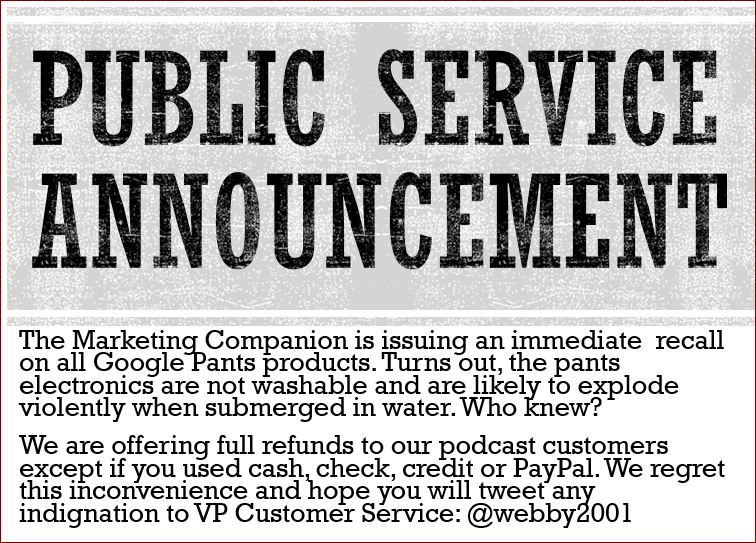 It seems that people have an endless curiosity about how I get things done. Tom Webster and I thought marketing lifehacks would be a very interesting podcast topic -- and it was, because Tom and I had some pretty divergent views on tech solutions versus old-school lifehacks to manage a busy schedule. Some of the topics we covered: - Multi-tasking
- eMail management tricks
- Tricks to staying disciplined and focused
- When to out-source tasks and what to out-source
- How do you handle business upsets
- Dealing with the tyranny of FOMO (Fear of Missing Out)
- The "Swiss Army Knife" of marketing tools
- Productivity on the road
- Hacks for expense reports
And wait ... there's more! Where else you can hear about the hottest Internet sensations FaceMat and iTwister? Nowhere but here: Companies mentioned in this podcast:
Direct download: TMC.24.mp3
Category: Social Media Marketing
-- posted at: 9:00pm BST
|
|
Fri, 2 May 2014
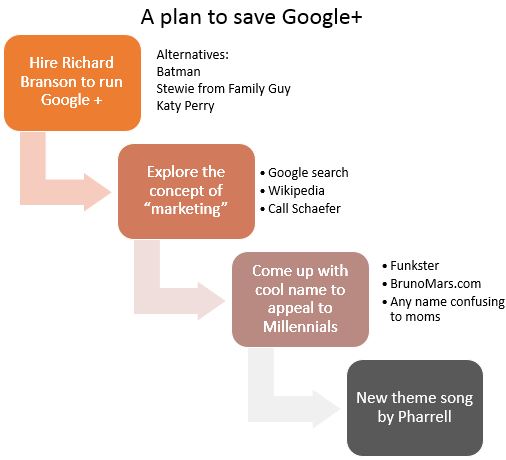 Whether you think Google+ is dead, dying, or still on the rise, one thing is certain: something has to change. This post will tell you what and why. Google+ was meant to take on Facebook. This is an economic imperative for a company built on: a) collecting personal information that can be turned into ads and b) finding ways to have you spend more time on their sites so you can see those ads. Facebook was capturing a disproportionate share of our personal information and Google had to do something. Their aim was to build a better social network and expose all of Facebook's flaws. You could argue that it did that ... so why is Google+ in turmoil? (And it is). The reason Google+ has never gone mainstream is because the world does not want a better social network, It wants a COOLER social network and Google+ is not cool with the young people who could move it into the mainstream. Whether you think Google+ is dead, dying, or still on the rise, one thing is certain: something has to change. This post will tell you what and why. Google+ was meant to take on Facebook. This is an economic imperative for a company built on: a) collecting personal information that can be turned into ads and b) finding ways to have you spend more time on their sites so you can see those ads. Facebook was capturing a disproportionate share of our personal information and Google had to do something. Their aim was to build a better social network and expose all of Facebook's flaws. You could argue that it did that ... so why is Google+ in turmoil? (And it is). The reason Google+ has never gone mainstream is because the world does not want a better social network, It wants a COOLER social network and Google+ is not cool with the young people who could move it into the mainstream.
It's not about tech. It's about cool. Facebook is vulnerable as Millenials move into other places like Snapchat, Twitter and Kik. Google is simply not on the radar screen of the folks who are going to determine the Next Big Thing. High school kids don't give a damn about better SEO results. They want to be cool. Instead of building engineeringly-beautiful new features and integrating with other Google products (who trusts that any way?) Google should hire Bruno Mars or Katy Perry to be the Google+ spokesperson and launch a massive media campaign to attract the hearts and minds of taste-makers under the age of 19. Marketing its products has always been a problem for Google and I think we're seeing this vulnerability in full view right now. There are a lot of aspects to this discussion beyond the Google+ cool factor (or lack of it) and that is the fodder for the conversation between Tom Webster and I on the latest Marketing Companion podcast. - Do we really need to fix Google Plus ?
- If the numbers on Google+ up, why the organizational disharmony?
- Is Google+ going to be another "fast fail" or a lasting part of the company's strategy?
All this and more will be revealed right now:
Direct download: TMC.23.mp3
Category: Social Media Marketing
-- posted at: 8:00pm BST
|
|
Tue, 22 April 2014
 A few months ago, my blog was a target for a denial of service attack. What this meant was that a "bot" was set up by somebody (in this case a person in The Netherlands) to hit my site over and over so many times that readers cannot access the blog. It was a random attack and this might seem like a pretty dumb business plan, but apparently a lot of companies are obsessed with breaking into my site ... and probably yours too. The result was that I had to spend many hours and thousands of dollars to recover from the problem and guard against future attacks. My hosting company set up an app that would send me an alert when somebody tried to log into my site five times in a row, I had to turn off these notifications when they started arriving every five minutes. That's right. New attacks were occurring hundreds of times a day! That gives you some idea of the relentless barrage of bad stuff coming at our websites. More seriously, some of these bad guys are getting through. You have probably read recently about a number of bloggers turning off their comments because of the new spam attacks that are getting through to their blogs. Anecdotally, it seems in the past few weeks more people are also suffering from websites that are hacked or crash under denial of service attacks. And of course, there have been several high-profile stories about companies experiencing serious data breaches that compromise their customers. All this makes me wonder ... Are the bad guys winning? In our latest Marketing Companion Podcast, Tom Webster and I explore this topic and much more. In fact, we begin with an enlightening discussion about the diplomatic opportunities for American bacon but then also get into: A few months ago, my blog was a target for a denial of service attack. What this meant was that a "bot" was set up by somebody (in this case a person in The Netherlands) to hit my site over and over so many times that readers cannot access the blog. It was a random attack and this might seem like a pretty dumb business plan, but apparently a lot of companies are obsessed with breaking into my site ... and probably yours too. The result was that I had to spend many hours and thousands of dollars to recover from the problem and guard against future attacks. My hosting company set up an app that would send me an alert when somebody tried to log into my site five times in a row, I had to turn off these notifications when they started arriving every five minutes. That's right. New attacks were occurring hundreds of times a day! That gives you some idea of the relentless barrage of bad stuff coming at our websites. More seriously, some of these bad guys are getting through. You have probably read recently about a number of bloggers turning off their comments because of the new spam attacks that are getting through to their blogs. Anecdotally, it seems in the past few weeks more people are also suffering from websites that are hacked or crash under denial of service attacks. And of course, there have been several high-profile stories about companies experiencing serious data breaches that compromise their customers. All this makes me wonder ... Are the bad guys winning? In our latest Marketing Companion Podcast, Tom Webster and I explore this topic and much more. In fact, we begin with an enlightening discussion about the diplomatic opportunities for American bacon but then also get into:
- Are we seeing smarter spammers or the unintended consequences of Internet complexity?
- Does Google actually play an indirect role in spam attacks on small businesses?
- What is the business cost to keeping the bad guys away?
- Highlights from the new book Social Media Explained
- A trick to get to the heart of social media strategy
- New thoughts on measuring social media marketing ROI
- A discussion on who should be leading your social media marketing effort
Ready to listen to this discussion? It couldn't be easier to do
Direct download: TMC.22.mp3
Category: Social Media Marketing
-- posted at: 3:05am BST
|
|
Fri, 4 April 2014
 In the newest episode of The Marketing Companion Tom Webster and I examine a brand new study from Edison that reveals some eye-popping new insights on podcasting, online radio and social media consumption. Some of the highlights of this podcast episode include: In the newest episode of The Marketing Companion Tom Webster and I examine a brand new study from Edison that reveals some eye-popping new insights on podcasting, online radio and social media consumption. Some of the highlights of this podcast episode include:
- Introducing "Poodle King" Webster and Social Media Explained
- The explosion of online radio and the implications for content consumption
- Extraordinary changes in podcasting content, consumption, and audiences
- Mobile implications for content consumption and "digital snacks"
- Surprising new numbers on Google+ (is it finally a real thing?)
- The phenomenon of Instagram and Snapchat
- Where is Facebook in the mix ... declining, growing in new ways?
- Facebook as the "plumbing" for teens
Ready for more? Of course you are!
Direct download: TMC.21.mp3
Category: Social Media Marketing
-- posted at: 8:00pm BST
|
|
Sat, 22 March 2014

I go to a lot of marketing conferences and they are undeniably a great way to learn, network and stay up to speed on the human and technological breakthroughs that are transforming our business. But how are they changing? How important are they? Does it make sense to attend? To sponsor? This is probably a topic on a lot of minds as our personal time is compressed and travel budgets are slashed so Tom Webster and dove into this topic on our newest Marketing Companion podcast. Some of the topics we cover include: Ready to learn more? Of course you are! Here we go! People mentioned in this podcast: Jay Baer Mitch Joel Gini Dietrich Jason Keath John Jantsch Scott Monty
Direct download: TMC.20.mp3
Category: Social Media Marketing
-- posted at: 5:26am BST
|
|
Sat, 8 March 2014
 As many of our channels for reaching customers are getting strangled, brands are turning to new ways to connect and communicate with customers. One natural opportunity is to align with the authentic advocacy represented by bloggers and other powerful content creators. In an information-dense world where it is more difficult to become the signal instead of the noise, blogger outreach is escalating, providing both financial opportunity and ethical dilemmas. This dynamic provides fascinating and entertaining fodder for the latest Marketing Companion podcast. Tom Webster and I dissect some of the most important issues in the field today like: As many of our channels for reaching customers are getting strangled, brands are turning to new ways to connect and communicate with customers. One natural opportunity is to align with the authentic advocacy represented by bloggers and other powerful content creators. In an information-dense world where it is more difficult to become the signal instead of the noise, blogger outreach is escalating, providing both financial opportunity and ethical dilemmas. This dynamic provides fascinating and entertaining fodder for the latest Marketing Companion podcast. Tom Webster and I dissect some of the most important issues in the field today like:
- Flout: The New Standard for Influence. Really.
- Why bloggers are trumping mainstream media
- A first-hand account of escalating influence marketing
- Why 95 percent brands are stumbling in the influence marketing field
- Stepping over the line -- Influencer or infomercial?
- How to create raving advocates the right way
Hey! I'm ready to listen to this all over again! Are you ready?
Direct download: TMC.19.mp3
Category: Social Media Marketing
-- posted at: 4:58am BST
|
|
Fri, 21 February 2014
 A number of news items coalesced recently and made me wonder ... what is the true role of social media in the marketing mix today? How has it changed? Is it really about connection? Is it still a way to engage with customers? Or, has it been so overrun by agencies and programmed content that it is little more than advertising? Maybe you have been wondering the same thing? This is such a vital topic that Tom Webster and I decided to tackle this on the latest edition of The Marketing Companion. Have you listened to our podcast yet? If not, please give it a try. We always aim to deliver entertaining and thought ideas to help you through the latest marketing trends and you might have some fun along the way, too. In this edition, we explore: A number of news items coalesced recently and made me wonder ... what is the true role of social media in the marketing mix today? How has it changed? Is it really about connection? Is it still a way to engage with customers? Or, has it been so overrun by agencies and programmed content that it is little more than advertising? Maybe you have been wondering the same thing? This is such a vital topic that Tom Webster and I decided to tackle this on the latest edition of The Marketing Companion. Have you listened to our podcast yet? If not, please give it a try. We always aim to deliver entertaining and thought ideas to help you through the latest marketing trends and you might have some fun along the way, too. In this edition, we explore:
- The time element --- social media versus advertising
- Estimating the sales power of social media
- Weak links versus strong links and how this converts to sales
- The correlation between share of conversation and market share
- Social media at the top of the sales cycle and at the end of it
- Is social media more like advertising or marketing?
- A case study illustrating the impression power of social media
- How will social media platforms re-invent themselves to ignite a "wow factor?"
Yes, we covered a lot of ground in just 30 minutes! Are you ready to give this a listen? Resources mentioned in this podcast: The Full Facts Book of Cold Reading: A Comprehensive Guide to the Most Persuasive Psychological Manipulation Technique in the World Age of Context: Mobile, Sensors, Data and the Future of Privacy Content Shock: Why content marketing is not a sustainable strategy The results are in: A case study of social influence Posts about Esurance Super Bowl ads referenced to in the podcast Why the little guy won marketing's biggest prize The missing link between awareness and action The mind-boggling lunacy of people who were impressed with Esurance's Super Bowl ad
Direct download: TMC.18.mp3
Category: Social Media Marketing
-- posted at: 8:00pm BST
|
|
Fri, 7 February 2014

Over the past decade, companies and executives have re-discovered the power of incorporating public speaking into the marketing mix. Some of the advantages include: - Creating high-quality content that can be leveraged in many places
- Cost-effective way to reach a targeted audience with a message
- Good PR opportunities.
- Building a personal brand that also can accentuate a product and company brand (think of Richard Branson)
- Leveraging a position of personal thought leadership to promote a company
This growing trend has impacted marketing strategies and transformed the professional speaking industry. One speaker told me that it is more difficult getting high-level paying engagements now because so many companies are willing to offer their executives as speakers for free. This opportunity is not often evaluated in terms of marketing strategy so Tom Webster and I thought it would be an ideal topic for our latest edition of The Marketing Companion podcast. We had a lot of fun on this episode and begin by rolling out a new content marketing "product" that includes "Breaking Bieber." You have to hear it to believe it! But we also roll up our sleeves and get into a discussion full of tips on how you can be more effective in adding public speaking to your marketing mix: - Ideas on how to be a more effective and entertaining presenter
- Structuring your speech for maximum impact
- Overcoming nerves -- The introvert's guide to public speaking
- Rule the slides -- Keys to preparation
- Is your speech intellectual property that needs to be protected or do you want it to go viral?
- Leveraging speaking-related content in other marketing formats
Are you ready to rumble? Of course you are! Folks mentioned in this podcast: Mitch Joel Tom Martin Tamsen Webster
Direct download: TMC.17.mp3
Category: Social Media Marketing
-- posted at: 3:53am BST
|
|
Fri, 24 January 2014
 When I was in graduate school I took a class that examined the qualities of leadership. I have to make a confession ... the only reason I took it was because I thought it was going to be an easy blow-off class! I was completely wrong. This turned out to be one of the most interesting and inspiring classes of my career and it ignited a lifetime of study on the subject. It turned me into a leadership junky. When I was in graduate school I took a class that examined the qualities of leadership. I have to make a confession ... the only reason I took it was because I thought it was going to be an easy blow-off class! I was completely wrong. This turned out to be one of the most interesting and inspiring classes of my career and it ignited a lifetime of study on the subject. It turned me into a leadership junky.
My fascination with this subject was one of the reasons that drove me to write Return On Influence . I became obsessed with this idea -- how do you become a leader on the Internet -- a place that HATES leaders! Trying to understand those changes was a lot of fun and believe me, leadership DOES exist on the Internet, whether people want it or not. To a large extent, I think the "You're not my boss" attitude of social media has made the idea of leadership an unpopular concept. I see this anti-leadership mentality dripping from online posts and comments. . I became obsessed with this idea -- how do you become a leader on the Internet -- a place that HATES leaders! Trying to understand those changes was a lot of fun and believe me, leadership DOES exist on the Internet, whether people want it or not. To a large extent, I think the "You're not my boss" attitude of social media has made the idea of leadership an unpopular concept. I see this anti-leadership mentality dripping from online posts and comments. And, to some extent, the attitude may have been codified when Zappos recently announced that it was eliminating titles and organizational charts. This was too good of a topic to pass up for me and I think you'll enjoy the discussion Tom Webster and I have on this topic on the newest edition of our Marketing Companion podcast. But that's just the beginning. Tom and I cover a lot of ground in this edition. As you may know, a recent post I wrote called Content Shock went crazy. Suddenly, I felt like I had become the center of attention for a large portion of the marketing dialogue. When we recorded this episode of the podcast, the personal implications of all this attention and the clubbiness of the social web were weighing on my mind. This led into a discussion of "content curation" versus "content assembly." Is curation a legitimate way to stand out today? Isn't every move Google makes HURTING the idea of curating content as a strategy? Tom does a great job in this podcast providing some tips for skillful content curation. Are you ready for some podcasting fun? Well, wait no longer.
Direct download: TMC.16.mp3
Category: Social Media Marketing
-- posted at: 7:15pm BST
|
|
Fri, 10 January 2014

Over the past few weeks the interweb airwaves have been humming and buzzing with data pointing to the increasing costs of getting your content seen and distributed through an over-crowded web. - In a recent Advertising Age article, Facebook reports: "Content that is eligible to be shown in our news feed is increasing at a faster rate than people's ability to consume it."
- A study by InboundWriter shows only 10 to 20 percent of a company’s website content drives 90 percent of its online traffic.
- Social platforms are creating programs to highlight organic content from the brands that spend the most money on their ads. So paid ads and sponsored content will soon be driving the “organic” reach of content.
- Reports claim the price of social media monitoring is going up because there is so much more content to process
- According to a recent IZEA survey, 61 percent of marketers have paid "influencers" to mention their product and share their content.
- According to a LexisNexis (client) study on International Workplace Productivity, 62% of white collar workers admit that the quality of their work suffers because they can’t sort through the information they need fast enough.
All of these trends support the idea of a "Content Shock" that is coming -- if it isn't here already -- for many businesses. Businesses who just pump out more content -- even "better" content -- are engaging in a strategy that is becoming increasingly difficult because the cost to succeed is going up, up, up. What are you going to do about it? That is really the dialogue that has to be happening next, right? And that is the conversation that begins here, in this new edition of the Marketing Companion podcast I created with Tom Webster. We start with a little fun, introducing a new idea called "Prickstarter" and then get into some pretty deep ideas about content and audience that includes: - The advantage of "ether" in the marketplace
- The decline of RSS and the coming Age of the Great Algorithm
- Media is media. Integrating channels to present one message to your customers is a key idea.
- Audience is not the same as "buyer" -- Creating personas may be an out-dated strategy?
- A focus on emotional ties and "human" as a competitive strategy
- Bronies and the Celine Dion play -- you just have to hear it to believe it
- Passionate content versus content and why "helpful" is not a point of differentiation
Pretty amazing, right? Resources mentioned in this podcast Comment from Ken Rosen that served as an example of Content Shock Three phases of the web reference from Microsoft's Dean Hauchomovitch Shel Holtz post on consumer view of Content Shock Christopher Penn discussion on owned, earned and paid media Website of Dr. Robert Cialdini Website of Voices Heard Media Illustration courtesy BigStock.com This content was created as part of the IBM for Midsize Business program, which provides midsize businesses with the tools, expertise and solutions they need to become engines of a smarter planet. I’ve been compensated to contribute to this program, but the opinions expressed in this post are my own and don't necessarily represent IBM's positions, strategies or opinions. 
Direct download: TMC.15.mp3
Category: Social Media Marketing
-- posted at: 8:39pm BST
|
|




 We've had a great year on The Marketing Companion podcast and Tom Webster and I thought we would end 2014 with a bit of fun. We've compiled a few of the most hilarious highlights from our podcast so you can ring in 2015 with a laugh. Nothing But the Funny Bits features some of our most popular "products" that got us laughing the hardest, including:
We've had a great year on The Marketing Companion podcast and Tom Webster and I thought we would end 2014 with a bit of fun. We've compiled a few of the most hilarious highlights from our podcast so you can ring in 2015 with a laugh. Nothing But the Funny Bits features some of our most popular "products" that got us laughing the hardest, including:
 I always find it curious when people compare our social media presence with our REAL presence in the "real world." What makes people think that Facebook is NOT the real world? Increasingly, we are beginning to see these lines blur. We create our personality on Facebook. But Facebook is also creating our personality. Facebook changes our behavior. Seriously. Recently, Facebook demonstrated how it can
I always find it curious when people compare our social media presence with our REAL presence in the "real world." What makes people think that Facebook is NOT the real world? Increasingly, we are beginning to see these lines blur. We create our personality on Facebook. But Facebook is also creating our personality. Facebook changes our behavior. Seriously. Recently, Facebook demonstrated how it can  Do you nurture your online personal brand? Or is your brand simply your personality? Does your personality create your brand or does your brand create your personality? Tom Webster and I had a disagreement on this and the discussion was so compelling we decided to create some content around this in the form of a podcast. In fact, Tom characterizes personal branding as a "load of crap."
Do you nurture your online personal brand? Or is your brand simply your personality? Does your personality create your brand or does your brand create your personality? Tom Webster and I had a disagreement on this and the discussion was so compelling we decided to create some content around this in the form of a podcast. In fact, Tom characterizes personal branding as a "load of crap."
 The advent of Ello has been one of the most interesting developments of the year. The new social network promises a simple, ad-free platform to connect and share. Wait. Ad-free you say? In fact, the platform's founder, Paul Budnitz, has been making the media rounds proclaiming he "doesn't care about money." While there is probably more to this network than pure virtue, Ello is undeniably HOT, signing up 30,000 new users every HOUR. Many bloggers are trumpeting this little start-up as the Facebook killer but is that realistic? Is it possible? And when the stripped-down application offers significantly less functionality than the ad-free Google+, why is this even catching on? Is this something important, or simply a reaction to failures of other networks? Tom Webster and I could not resist exploring this topic on our latest podcast which is sure to get you thinking about social media platforms in a new way. This is a jam-packed 30 minutes and just a few of the nuggets include ...
The advent of Ello has been one of the most interesting developments of the year. The new social network promises a simple, ad-free platform to connect and share. Wait. Ad-free you say? In fact, the platform's founder, Paul Budnitz, has been making the media rounds proclaiming he "doesn't care about money." While there is probably more to this network than pure virtue, Ello is undeniably HOT, signing up 30,000 new users every HOUR. Many bloggers are trumpeting this little start-up as the Facebook killer but is that realistic? Is it possible? And when the stripped-down application offers significantly less functionality than the ad-free Google+, why is this even catching on? Is this something important, or simply a reaction to failures of other networks? Tom Webster and I could not resist exploring this topic on our latest podcast which is sure to get you thinking about social media platforms in a new way. This is a jam-packed 30 minutes and just a few of the nuggets include ... My friend
My friend 
 One of the most interesting aspects about being an observer in this particular time and place in the history of marketing is watching the continuous cycle of innovation, experimentation, and maturity. The dynamics of our age are unprecedented and exciting. For example, let's say we were in the 1970s. In that entire decade, what innovation caused us to re-think marketing strategy? There was probably one in the entire ten-year-period: the emergence of cable TV. If you compare it to what we face today, it really re-defines what marketing is all about, doesn't it? We need a core competency in the ability to effectively assess the relevancy of a technological innovation and rapidly reject it or deploy it. Another advantage we have today as marketers is the wave upon wave of data coming at us to help us make these decisions. One interesting data point emerged last week that was the catalyst for a much-needed conversation -- what are the boundaries of inbound marketing? The data point was a public filing revealing that HubSpot -- which defined the term "inbound marketing" -- is still hemorrhaging money after eight years and its sales and marketing costs are arguably higher than what would be expected from a "traditional" approach. On the surface, this would seem to break the inbound promise. Or does it?
One of the most interesting aspects about being an observer in this particular time and place in the history of marketing is watching the continuous cycle of innovation, experimentation, and maturity. The dynamics of our age are unprecedented and exciting. For example, let's say we were in the 1970s. In that entire decade, what innovation caused us to re-think marketing strategy? There was probably one in the entire ten-year-period: the emergence of cable TV. If you compare it to what we face today, it really re-defines what marketing is all about, doesn't it? We need a core competency in the ability to effectively assess the relevancy of a technological innovation and rapidly reject it or deploy it. Another advantage we have today as marketers is the wave upon wave of data coming at us to help us make these decisions. One interesting data point emerged last week that was the catalyst for a much-needed conversation -- what are the boundaries of inbound marketing? The data point was a public filing revealing that HubSpot -- which defined the term "inbound marketing" -- is still hemorrhaging money after eight years and its sales and marketing costs are arguably higher than what would be expected from a "traditional" approach. On the surface, this would seem to break the inbound promise. Or does it? Is there any greater source of emotional debate and mis-information on the web today than Facebook reach? I recently had a little debate on this subject with a person who wrote a glowing article on the promise of Facebook reach -- despite what appears to be pretty bad news in this corner of the web. I challenged him -- Why write an article that seems to be so counter to the facts? "I'm tired of so much negativity about Facebook," he said. "I wanted spin the facts in a more positive way." With so much at stake and so much mythology out there, it is certainly difficult to know who to believe or what to believe any more .... and we certainly do not need to be "spinning the facts." Part of the reason for so much confusion is that the truth is hard to come by. The real numbers are hidden behind company administrative accounts. There are only a few companies in the world with access to enough of these Facebook pages to make a meaningful statement about the true nature of Facebook reach.
Is there any greater source of emotional debate and mis-information on the web today than Facebook reach? I recently had a little debate on this subject with a person who wrote a glowing article on the promise of Facebook reach -- despite what appears to be pretty bad news in this corner of the web. I challenged him -- Why write an article that seems to be so counter to the facts? "I'm tired of so much negativity about Facebook," he said. "I wanted spin the facts in a more positive way." With so much at stake and so much mythology out there, it is certainly difficult to know who to believe or what to believe any more .... and we certainly do not need to be "spinning the facts." Part of the reason for so much confusion is that the truth is hard to come by. The real numbers are hidden behind company administrative accounts. There are only a few companies in the world with access to enough of these Facebook pages to make a meaningful statement about the true nature of Facebook reach.
 The decline in organic reach was steeper and more rapid than I expected. No wonder marketing strategies are in turmoil if organic reach has declined 30 percent or more for some companies in such a short period of time:
The decline in organic reach was steeper and more rapid than I expected. No wonder marketing strategies are in turmoil if organic reach has declined 30 percent or more for some companies in such a short period of time: 
 Are you using Twitter for your business? Maybe the time for Twitter is now if you consider some of the trends on this popular social media platform:
Are you using Twitter for your business? Maybe the time for Twitter is now if you consider some of the trends on this popular social media platform: Have you tried The Marketing Companion podcast yet? People seem to love the humor and intelligence of our audio marketing adventures. If you have not listened in yet, this would be a great edition to begin with. In this show, Tom Webster and I were far too caffeinated to stick to one subject so we decided to go through a grab bag of current topics including: Erasing yourself from Google. New European Union legislation on "the right to be forgotten" allows people to remove themselves from search results. Why hasn't this been an issue in the U.S,? And what happens when you have the ability to remove yourself from history? There are also some profound implications for marketers and content creators. Buyer personas -- Tom and I open up a "mental can of worms" when we discuss the use and perhaps over-use of buyer personas and the difference between "audience" and "buyers." Are you sure you know who your buyers are? Are personas always necessary? Do personas kill great content? LinkedIn blogging -- An important source of business content or more Content Shock? Tom and I disagree on this topic. Content inspiration -- Tom and I share key tips for finding new topic ideas for our blogs. My goodness. It is a veritable cornucopia of marketing delight! No time to waste now, click here to dive in:
Have you tried The Marketing Companion podcast yet? People seem to love the humor and intelligence of our audio marketing adventures. If you have not listened in yet, this would be a great edition to begin with. In this show, Tom Webster and I were far too caffeinated to stick to one subject so we decided to go through a grab bag of current topics including: Erasing yourself from Google. New European Union legislation on "the right to be forgotten" allows people to remove themselves from search results. Why hasn't this been an issue in the U.S,? And what happens when you have the ability to remove yourself from history? There are also some profound implications for marketers and content creators. Buyer personas -- Tom and I open up a "mental can of worms" when we discuss the use and perhaps over-use of buyer personas and the difference between "audience" and "buyers." Are you sure you know who your buyers are? Are personas always necessary? Do personas kill great content? LinkedIn blogging -- An important source of business content or more Content Shock? Tom and I disagree on this topic. Content inspiration -- Tom and I share key tips for finding new topic ideas for our blogs. My goodness. It is a veritable cornucopia of marketing delight! No time to waste now, click here to dive in: Complaining about Facebook has become one of the web's favorite spectator sports. But if you were the king of Facebook, what would you do to fix it? Well, Tom Webster and I decided to do something about it. We appointed ourselves the potentate and caliph of Facebook for a day and solved all of the company's problems in 30 minutes. Impossible you say? Well, we can cover a heck of a lot of ground in just one podcast, like ...
Complaining about Facebook has become one of the web's favorite spectator sports. But if you were the king of Facebook, what would you do to fix it? Well, Tom Webster and I decided to do something about it. We appointed ourselves the potentate and caliph of Facebook for a day and solved all of the company's problems in 30 minutes. Impossible you say? Well, we can cover a heck of a lot of ground in just one podcast, like ... It seems everywhere you go these days people are talking about Disruption as the next big business "thing." There are packed
It seems everywhere you go these days people are talking about Disruption as the next big business "thing." There are packed  There are so many shifting sands on the marketing landscape that it might seem overwhelming. But there are two trends that deserve to be on your radar screen and that is the topic of the latest scintillating edition of The Marketing Companion. After Tom and I enjoy a non-traditional gift exchange for the one-year anniversary of the podcast, we dissect what we believe to be important trends to consider moving forward:
There are so many shifting sands on the marketing landscape that it might seem overwhelming. But there are two trends that deserve to be on your radar screen and that is the topic of the latest scintillating edition of The Marketing Companion. After Tom and I enjoy a non-traditional gift exchange for the one-year anniversary of the podcast, we dissect what we believe to be important trends to consider moving forward: By Mark Schaefer My friend and podcast co-host Tom Webster recently penned a really honest and thought-provoking post called "
By Mark Schaefer My friend and podcast co-host Tom Webster recently penned a really honest and thought-provoking post called " Whether you think Google+ is dead, dying, or still on the rise, one thing is certain: something has to change. This post will tell you what and why. Google+ was meant to take on Facebook. This is an economic imperative for a company built on: a) collecting personal information that can be turned into ads and b) finding ways to have you spend more time on their sites so you can see those ads. Facebook was capturing a disproportionate share of our personal information and Google had to do something. Their aim was to build a better social network and expose all of Facebook's flaws. You could argue that it did that ... so why is Google+ in turmoil? (And it is). The reason Google+ has never gone mainstream is because the world does not want a better social network, It wants a COOLER social network and Google+ is not cool with the young people who could move it into the mainstream.
Whether you think Google+ is dead, dying, or still on the rise, one thing is certain: something has to change. This post will tell you what and why. Google+ was meant to take on Facebook. This is an economic imperative for a company built on: a) collecting personal information that can be turned into ads and b) finding ways to have you spend more time on their sites so you can see those ads. Facebook was capturing a disproportionate share of our personal information and Google had to do something. Their aim was to build a better social network and expose all of Facebook's flaws. You could argue that it did that ... so why is Google+ in turmoil? (And it is). The reason Google+ has never gone mainstream is because the world does not want a better social network, It wants a COOLER social network and Google+ is not cool with the young people who could move it into the mainstream. A few months ago, my blog was a target for a denial of service attack. What this meant was that a "bot" was set up by somebody (in this case a person in The Netherlands) to hit my site over and over so many times that readers cannot access the blog. It was a random attack and this might seem like a pretty dumb business plan, but apparently a lot of companies are obsessed with breaking into my site ... and probably yours too. The result was that I had to spend many hours and thousands of dollars to recover from the problem and guard against future attacks. My hosting company set up an app that would send me an alert when somebody tried to log into my site five times in a row, I had to turn off these notifications when they started arriving every five minutes. That's right. New attacks were occurring hundreds of times a day! That gives you some idea of the relentless barrage of bad stuff coming at our websites. More seriously, some of these bad guys are getting through. You have probably read recently about a number of bloggers turning off their comments because of the new spam attacks that are getting through to their blogs. Anecdotally, it seems in the past few weeks more people are also suffering from websites that are hacked or crash under denial of service attacks. And of course, there have been several high-profile stories about companies experiencing serious data breaches that compromise their customers. All this makes me wonder ... Are the bad guys winning? In our latest Marketing Companion Podcast, Tom Webster and I explore this topic and much more. In fact, we begin with an enlightening discussion about the diplomatic opportunities for American bacon but then also get into:
A few months ago, my blog was a target for a denial of service attack. What this meant was that a "bot" was set up by somebody (in this case a person in The Netherlands) to hit my site over and over so many times that readers cannot access the blog. It was a random attack and this might seem like a pretty dumb business plan, but apparently a lot of companies are obsessed with breaking into my site ... and probably yours too. The result was that I had to spend many hours and thousands of dollars to recover from the problem and guard against future attacks. My hosting company set up an app that would send me an alert when somebody tried to log into my site five times in a row, I had to turn off these notifications when they started arriving every five minutes. That's right. New attacks were occurring hundreds of times a day! That gives you some idea of the relentless barrage of bad stuff coming at our websites. More seriously, some of these bad guys are getting through. You have probably read recently about a number of bloggers turning off their comments because of the new spam attacks that are getting through to their blogs. Anecdotally, it seems in the past few weeks more people are also suffering from websites that are hacked or crash under denial of service attacks. And of course, there have been several high-profile stories about companies experiencing serious data breaches that compromise their customers. All this makes me wonder ... Are the bad guys winning? In our latest Marketing Companion Podcast, Tom Webster and I explore this topic and much more. In fact, we begin with an enlightening discussion about the diplomatic opportunities for American bacon but then also get into: In the newest episode of The Marketing Companion Tom Webster and I examine a brand new study from Edison that reveals some eye-popping new insights on podcasting, online radio and social media consumption. Some of the highlights of this podcast episode include:
In the newest episode of The Marketing Companion Tom Webster and I examine a brand new study from Edison that reveals some eye-popping new insights on podcasting, online radio and social media consumption. Some of the highlights of this podcast episode include:
 As many of our channels for reaching customers are getting strangled, brands are turning to new ways to connect and communicate with customers. One natural opportunity is to align with the authentic advocacy represented by bloggers and other powerful content creators. In an information-dense world where it is more difficult to become the signal instead of the noise, blogger outreach is escalating, providing both financial opportunity and ethical dilemmas. This dynamic provides fascinating and entertaining fodder for the latest Marketing Companion podcast. Tom Webster and I dissect some of the most important issues in the field today like:
As many of our channels for reaching customers are getting strangled, brands are turning to new ways to connect and communicate with customers. One natural opportunity is to align with the authentic advocacy represented by bloggers and other powerful content creators. In an information-dense world where it is more difficult to become the signal instead of the noise, blogger outreach is escalating, providing both financial opportunity and ethical dilemmas. This dynamic provides fascinating and entertaining fodder for the latest Marketing Companion podcast. Tom Webster and I dissect some of the most important issues in the field today like: A number of news items coalesced recently and made me wonder ... what is the true role of social media in the marketing mix today? How has it changed? Is it really about connection? Is it still a way to engage with customers? Or, has it been so overrun by agencies and programmed content that it is little more than advertising? Maybe you have been wondering the same thing? This is such a vital topic that Tom Webster and I decided to tackle this on the latest edition of The Marketing Companion. Have you listened to our podcast yet? If not, please give it a try. We always aim to deliver entertaining and thought ideas to help you through the latest marketing trends and you might have some fun along the way, too. In this edition, we explore:
A number of news items coalesced recently and made me wonder ... what is the true role of social media in the marketing mix today? How has it changed? Is it really about connection? Is it still a way to engage with customers? Or, has it been so overrun by agencies and programmed content that it is little more than advertising? Maybe you have been wondering the same thing? This is such a vital topic that Tom Webster and I decided to tackle this on the latest edition of The Marketing Companion. Have you listened to our podcast yet? If not, please give it a try. We always aim to deliver entertaining and thought ideas to help you through the latest marketing trends and you might have some fun along the way, too. In this edition, we explore:
 When I was in graduate school I took a class that examined the qualities of leadership. I have to make a confession ... the only reason I took it was because I thought it was going to be an easy blow-off class! I was completely wrong. This turned out to be one of the most interesting and inspiring classes of my career and it ignited a lifetime of study on the subject. It turned me into a leadership junky.
When I was in graduate school I took a class that examined the qualities of leadership. I have to make a confession ... the only reason I took it was because I thought it was going to be an easy blow-off class! I was completely wrong. This turned out to be one of the most interesting and inspiring classes of my career and it ignited a lifetime of study on the subject. It turned me into a leadership junky.
